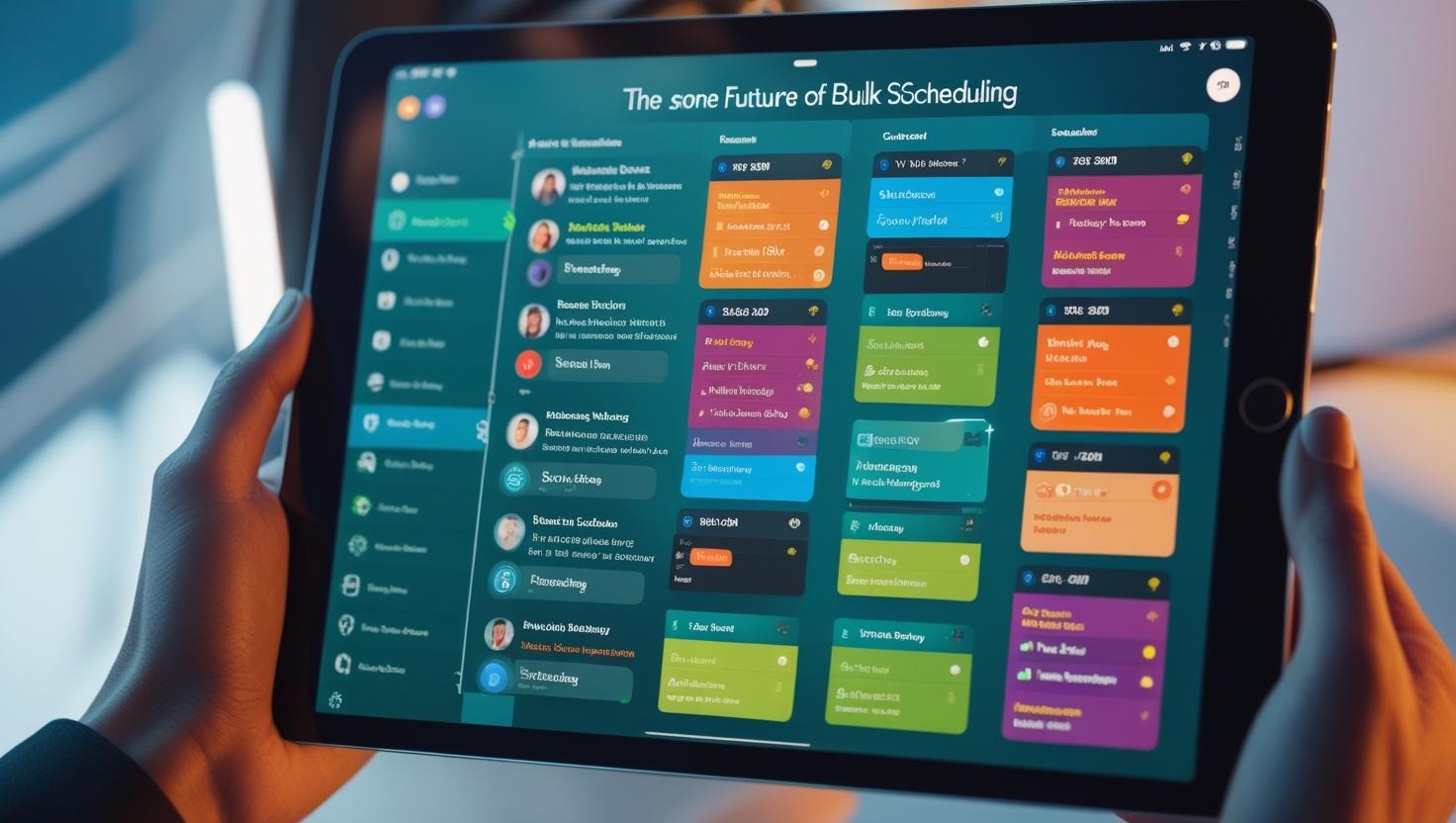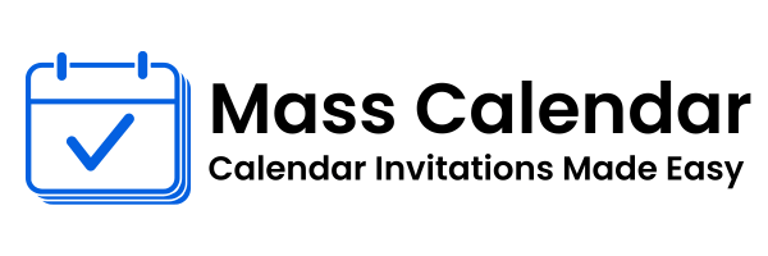The Future of Bulk Scheduling: Personalized Calendar Invites for Meetings and Events
In today’s hybrid work landscape, calendar scheduling is no longer a passive backend task—it’s a mission-critical part of delivering successful meetings and events. Whether you’re organizing a global webinar, recurring sales demos, or investor roundtables, the way you handle invites can significantly affect attendance and engagement.
BLOG
6/4/20252 min read


In today’s hybrid work landscape, calendar scheduling is no longer a passive backend task—it’s a mission-critical part of delivering successful meetings and events. Whether you’re organizing a global webinar, recurring sales demos, or investor roundtables, the way you handle invites can significantly affect attendance and engagement.
Unfortunately, traditional calendar tools like Gmail, Outlook, or Office 365 often fall short when managing mass meeting invites or ensuring personalized calendar invites are sent reliably and discreetly.
The Problem with Manual Calendar Scheduling
Here are key pain points many organizers face:
Manual processes don't scale—especially for global or cross-timezone events.
Limited bulk support when trying to send mass calendar invites in Outlook or Gmail.
No true 1:1 personalization, such as agenda content based on recipient roles or geography.
Poor RSVP tracking, especially when distributing static .ics files or generic links.
Even when teams try workarounds—like bulk calendar invites in Gmail—they often face spam filtering or deliverability issues. Clearly, mass scheduling requires smarter, modern solutions.
What Makes a Calendar Invite Truly Personalized?
A generic invitation can easily be ignored. A personalized calendar invite, on the other hand, delivers value immediately by:
Aligning with the recipient’s local timezone.
Embedding the right meeting platform (Zoom, Google Meet, Teams).
Including audience-specific content like strategy decks for CXOs or product walkthroughs for sales reps.
Providing event-specific reminders and follow-ups.
Additionally, smart invites should support add to event or add calendar to event buttons for seamless integration into Google, Outlook, or Apple calendars.
Key Components of Smarter Bulk Scheduling
Modern bulk scheduling involves more than just email lists. It requires:
A structured invite workflow using CSV uploads or CRM syncs.
Delivery of unique .ics files per recipient to boost compatibility.
Support for mass calendar invites in Gmail and send mass calendar invites in O365—without triggering spam filters.
Dynamic data fields—such as personalized titles, meeting descriptions, and URLs.
All of this ensures high deliverability and minimal friction during the RSVP or "Add to Calendar" process.
Cross-Platform Compatibility Is Non-Negotiable
To maximize engagement, calendar invites must be device-agnostic. Best practices include:
Adding addevent buttons in confirmation emails.
Generating downloadable .ics files with structured event metadata.
Creating add calendar to event links that auto-sync to Google, Outlook, and Apple platforms.
This ensures recipients can respond and participate—regardless of their email client or device.
The Feedback Loop: RSVP Tracking and Event Insights
Tracking invite delivery and engagement is essential. Effective systems now include:
Dashboards to track opens, clicks, adds to calendar, and actual attendance.
Notification flows that trigger automated follow-ups or rescheduling.
Integration with Zoom, Meet, or Teams for attendance validation.
Whether you’re managing bulk meeting invites for internal training or mass calendar invites for webinars, visibility into recipient behavior is the key to optimizing outcomes.
Use Cases: Who Needs Smarter Scheduling?
Bulk calendar scheduling is useful across industries and teams:
Marketing: Send thousands of customized webinar invites.
Sales: Trigger region-specific demo invites with dynamic calendar details.
Investor Relations: Schedule and track global earnings call participation.
Executive Events: Deliver mass calendar invites in Outlook to high-profile attendees.
Conclusion: The Evolution of Calendar-Based Engagement
The future of event success lies in how you schedule. Static, generic invites are quickly becoming obsolete. The modern era requires personalized, trackable, and scalable calendar scheduling methods—tools that integrate across platforms and connect with the recipient’s context.
Whether you’re sending bulk calendar invites in Gmail or trying to manage add calendar to event workflows across systems, the shift is clear: smarter scheduling is no longer optional—it’s the baseline for effective engagement.
MassCalendar.in
Send Bulk & Mass Calendar Invites Instantly
CONTACT
Meetings
+44 (0) 203 916 5117
© 2025. All rights reserved.
Help?
